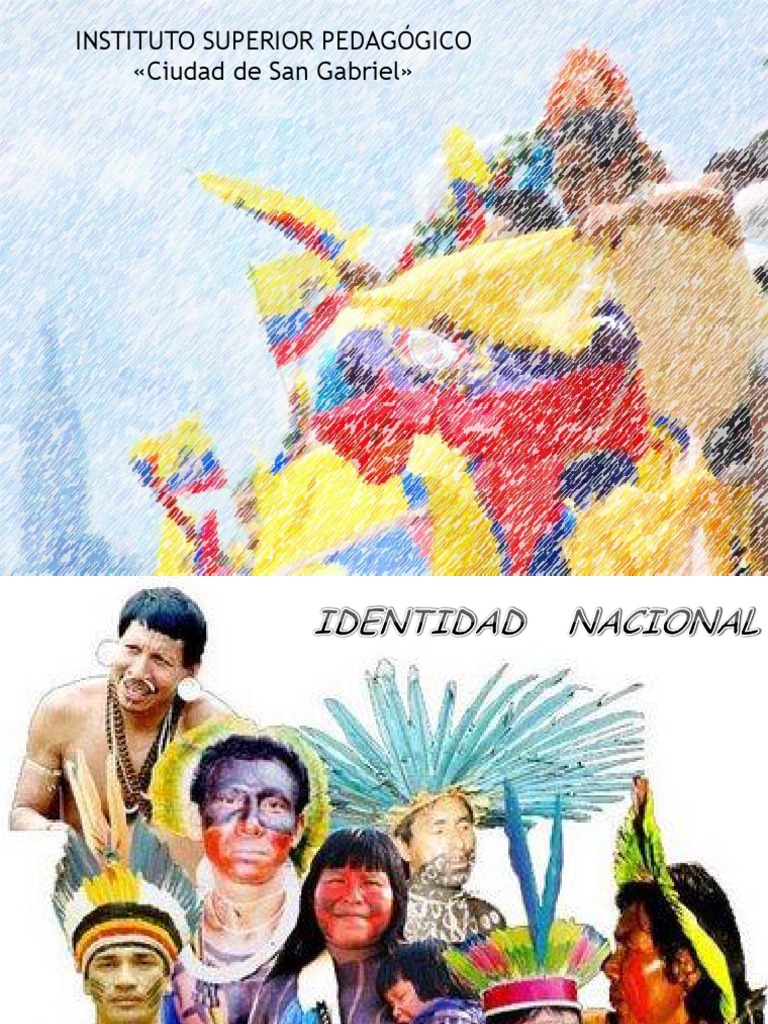The concept of “identidad del Ecuador” encompasses a multifaceted array of cultural, historical, and social elements that define the essence of Ecuadorian society. This identity is not formed in isolation; it is a tapestry woven from the threads of its diverse ethnic groups, rich traditions, and geographical variances.
Ecuador’s geographical location straddles the equator and features a variety of landscapes, including the Amazon rainforest, the Andes mountains, and the Galápagos Islands. This diversity in topography not only affects the climate but also cultivates a vast array of flora and fauna. The geographical features play a pivotal role in shaping regional identities within the nation. Each region exhibits its own traditions, dialects, and even culinary specialties, all contributing to a collective national identity.
At the heart of Ecuadorian identity lies its profound indigenous heritage. The indigenous peoples are not merely the historical antecedents of contemporary Ecuador; they are living embodiments of a vibrant culture that resists the incessant tides of globalization. The rich tapestry of traditions practiced by groups such as the Kichwa, Shuar, and Huaorani continues to thrive in the modern landscape. Their languages, arts, and agricultural practices enrich Ecuador’s cultural mosaic. Festivals such as Inti Raymi celebrate the Sun and agrarian cycles, thereby illustrating the deep connection between identity and the land.
Religious variations also shape the identity of Ecuador. The predominant Catholicism, heavily interwoven with indigenous beliefs, provides a unique perspective on spirituality. Festivals like Semana Santa reflect this amalgamation, as traditional Catholic rites integrate Indigenous rituals, fostering a unique expression of faith that embodies both colonial and pre-colonial influences.
The Ecuadorian identity further evolves through its historical development, particularly during the colonial era and the subsequent struggles for independence. The Spanish colonization left indelible marks on the cultural landscape, introducing language, customs, and governance structures that have persisted. The fight for independence in the 19th century was not merely a political endeavor but an assertion of national identity against colonial hegemony. Figures like Simón Bolívar became emblematic of the yearning for self-determination, instilling a sense of pride in the collective consciousness.
The modern Ecuadorian identity finds itself in a state of flux. As globalization accelerates, preserving traditional aspects of Ecuadorian life becomes a vital concern. Urbanization has led to the migration of individuals from rural settings to cities, often diluting traditional practices and languages. Yet, this migration also fosters a new hybrid identity where urban and rural influences merge, creating a dynamic cultural dialogue.
Language is a cornerstone of identity. Spanish is the official language, but Ecuador is home to millions of speakers of indigenous languages. The coexistence of these languages reflects the country’s commitment to multiculturalism. The promotion of Kichwa and other languages in educational institutions symbolizes a recognition of indigenous contributions to national identity. Efforts to revitalize these languages are pivotal for fostering a sense of belonging and cultural pride among indigenous populations.
The arts serve as a mirror reflecting the complexities of Ecuadorian identity. Literature, music, and visual arts articulate the themes of resilience, hope, and social justice. Prominent authors such as José de la Cuadra and Alicia Yánez Cossío have inscribed the struggles of their compatriots in their works, transcending mere storytelling to probe deeper societal issues. Music genres like pasillo, sanjuanito, and bomba echo Ecuador’s historical and cultural experiences, serving as vehicles for expression and resistance.
Furthermore, Ecuador’s culinary heritage is a remarkable aspect of its identity. From the coastal ceviche to highland locro, cuisine represents not just sustenance but a celebration of cultural diversity. Each dish embodies historical stories and traditions passed down through generations. The gastronomy also highlights the interplay between indigenous ingredients and colonial influences, representing a fusion of identities.
The ecological uniqueness of Ecuador, especially in the context of climate change, significantly informs national identity. The recognition of the Amazon rainforest as the “lungs of the Earth” elicits a sense of responsibility among Ecuadorians to advocate for environmental preservation. The concept of “buen vivir,” which emphasizes harmony between humans and nature, illustrates a cultural disposition that champions sustainability. This indigenous philosophical framework informs modern environmental policies, thereby reinforcing the deeper psychological affiliation with the land.
In conclusion, the identity of Ecuador is a complex, evolving narrative forged through history, ethnicity, geography, and cultural practices. It is an ongoing dialogue between the past and present, tradition and modernity. As the nation faces contemporary challenges, the resilience of its people and the vibrancy of its culture ensure that the Ecuadorian identity continues to thrive, reaffirming its relevance on the global stage. Maintaining a balance between heritage and progress will be essential as Ecuador navigates the intricacies of identity in the 21st century.
